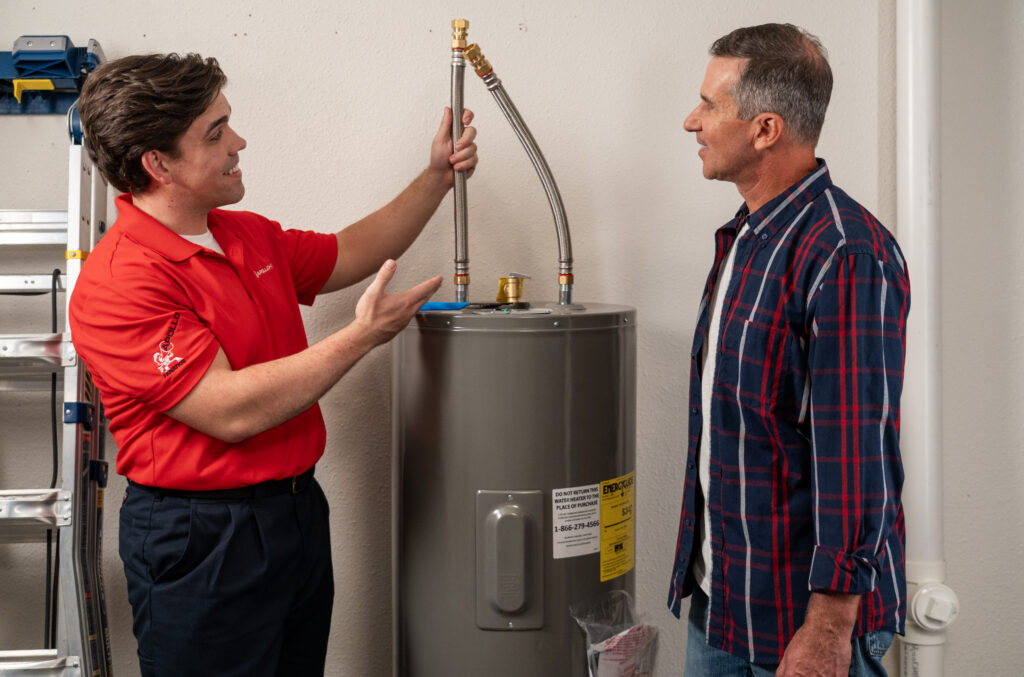HVAC System Leaking Water in Cincinnati, OH - Causes & Solutions

When your HVAC system starts leaking water, it can quickly turn from a small annoyance into a serious issue, causing water damage, lowering efficiency, and creating conditions for mold growth. In Cincinnati and throughout Dayton, Ohio, where seasonal temperature swings and humidity changes put HVAC systems to the test, water leaks can develop quickly if certain parts fail or become clogged. Knowing the causes, prevention methods, and repair options can help you protect your home and budget.
Common Causes of HVAC Water Leaks
Several issues can cause water to appear around or inside your HVAC unit. Understanding these problems makes it easier to respond before the damage worsens.
- Clogged drain lines- As your HVAC system cools the air, condensation forms and is directed into a drain line. Over time, dirt, dust, and algae can build up in the line, blocking water flow and causing backups. This is especially common during humid Cincinnati summers when your system produces more condensation than usual. If left untreated, water can overflow into nearby walls or flooring.
- Broken condensate pump- Some systems use a pump to move water from the drain pan to an outside drain. If the pump fails, water can collect around the unit and may even trigger safety switches that shut the system down. In Monroe County basements, where pumps are often located, a failure can lead to water pooling on concrete floors or near stored belongings.
- Leaking ducts- Poorly sealed or damaged ducts can draw in warm, moist air, which condenses when it meets cooler surfaces inside the system. This is more likely in uninsulated or unconditioned areas such as attics and basements. In winter, when duct temperature differences are greater, condensation issues can be even more noticeable.
How to Prevent HVAC System Leaks
Proactive maintenance is the most effective way to avoid water leaks and the problems they cause.
- Regular maintenance- Have your HVAC system inspected and serviced at least twice a year, ideally in spring before cooling season and in fall before heating season. A professional can spot signs of wear, test components, and ensure drain lines are clear.
- Drain cleaning- Keeping the condensate drain line clear is key to preventing water overflow. Technicians can flush the line to remove buildup, and some homeowners choose to have a safety switch installed to automatically shut down the system if a clog is detected.
- Insulating your system- Adding insulation to ducts and refrigerant lines prevents warm air from condensing on cold surfaces. In Cincinnati homes, where basements and attics are often unconditioned, this step is especially important for keeping moisture from forming where it shouldn’t.
By following these steps, you reduce the risk of leaks, improve your system’s efficiency, and can extend the lifespan of your HVAC equipment.
Why Choose Professional HVAC Repairs
When your HVAC system is leaking water, hiring a qualified technician is the safest and most cost-effective choice. Attempting DIY repairs without the right tools or knowledge can lead to further damage or even injury. Professional service ensures:
- Accurate diagnosis of the problem
- Proper repair or replacement of faulty components
- Advice on preventing future leaks
- Service that keeps manufacturer warranties intact
An experienced HVAC professional can also evaluate whether the leak is part of a larger performance issue, helping you decide if targeted repairs will be enough or if it is time to consider an upgrade.
Cost-Effective Repair and Maintenance Options
Not every HVAC leak means a major expense. Many fixes such as clearing a blocked drain line or replacing a failed condensate pump are relatively quick and affordable when handled early. Seasonal maintenance visits are a small investment compared to the potential cost of repairing water damage to drywall, flooring, or structural framing. For systems that are over 10-15 years old and require repeated leak repairs, replacement might be the more economical long-term choice, offering improved reliability and energy efficiency.
In Cincinnati, Ohio, an HVAC system leaking water can result from clogged drain lines, broken pumps, or leaky ducts, all of which can be made worse by the area’s seasonal humidity and temperature changes. Preventive care such as regular inspections, cleaning, and insulation can stop leaks before they cause damage. Addressing leaks promptly keeps your home safe, your system efficient, and your repair costs under control.
Frequently Asked Questions
Look for visible puddles near the indoor unit, water stains on nearby walls or ceilings, and musty odors that could indicate mold growth. You might also notice that the system is cycling off unexpectedly if a safety switch is tripped by excess water.
The most effective approach is regular professional maintenance to inspect and clean drain lines, replace air filters as needed, and verify that insulation is intact. In Monroe County, where seasonal humidity and temperature swings are significant, addressing these areas before summer and winter can prevent most leak-related issues.
If your system is relatively new and otherwise efficient, repair is often the most cost-effective choice. However, if it is older, has poor energy performance, or experiences frequent leaks, replacement may save you money over time. A technician can help you compare repair costs against the benefits of upgrading.


